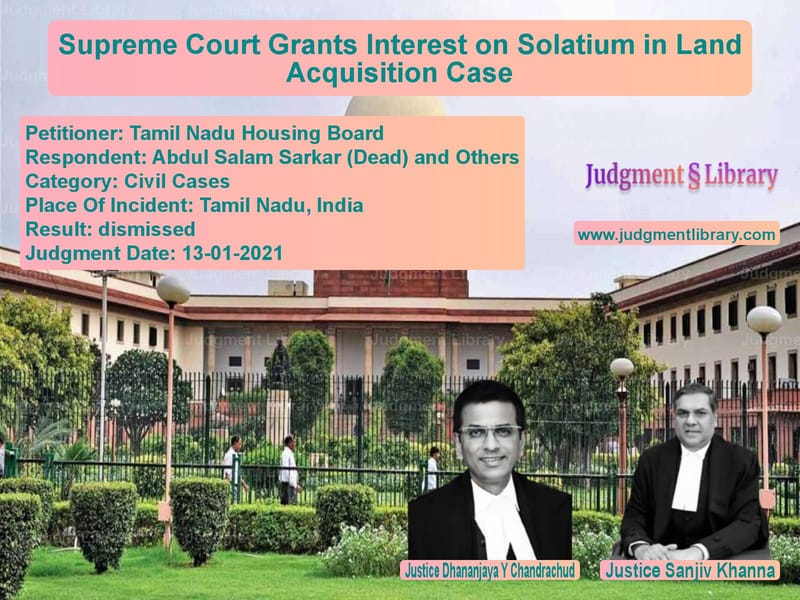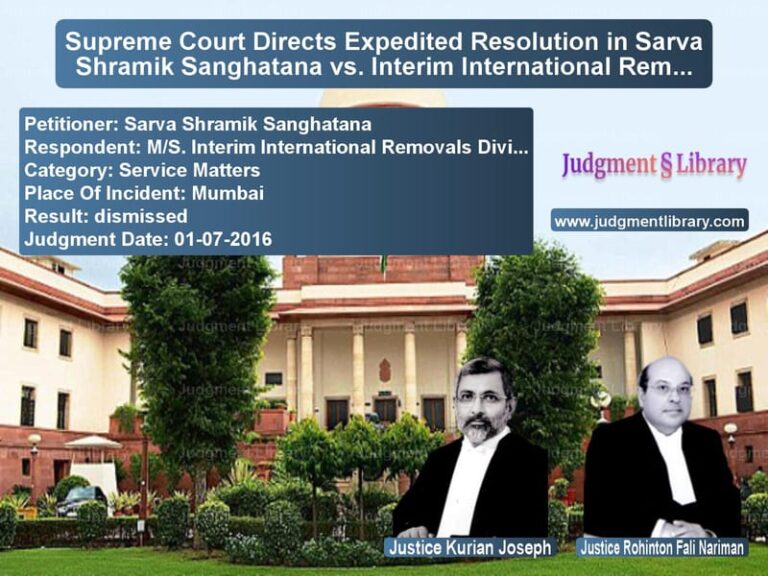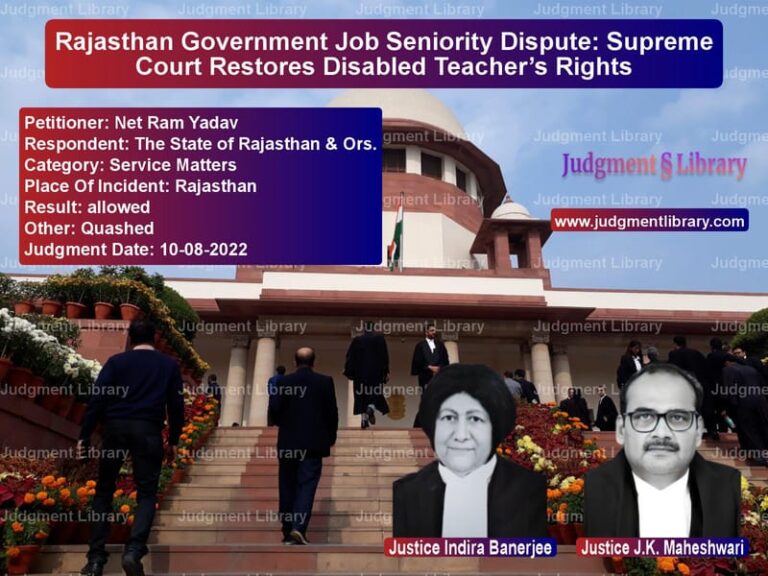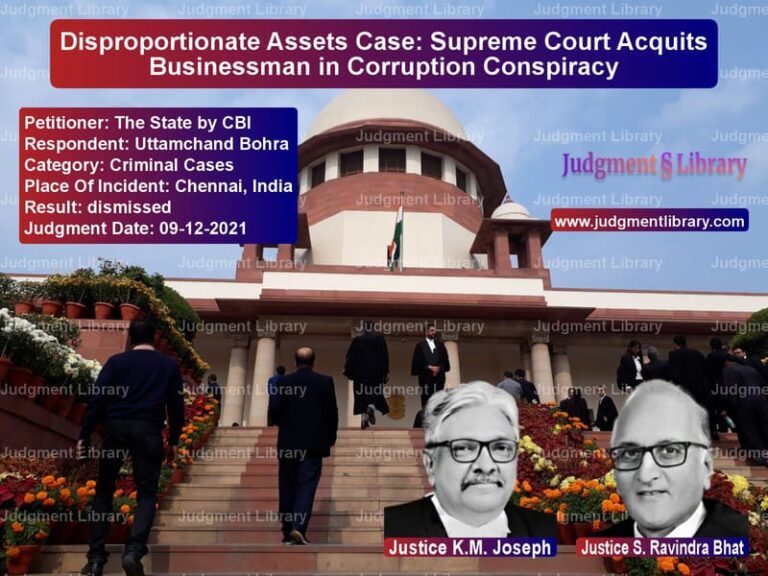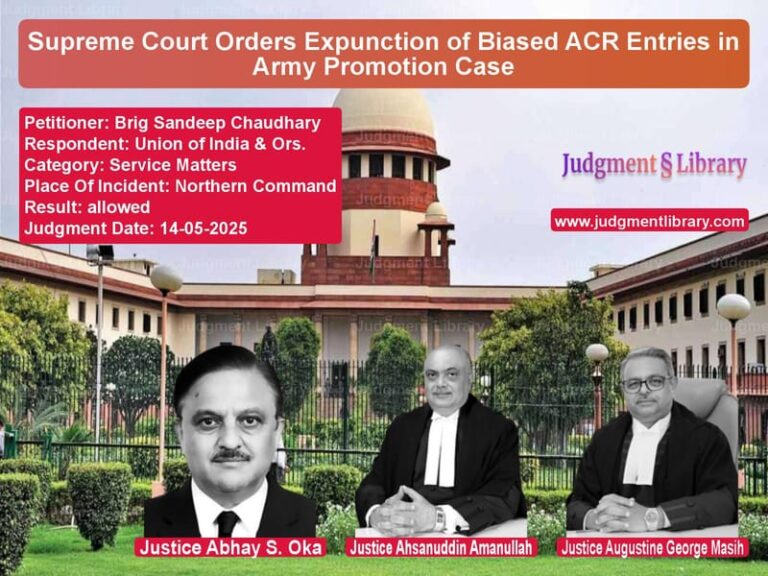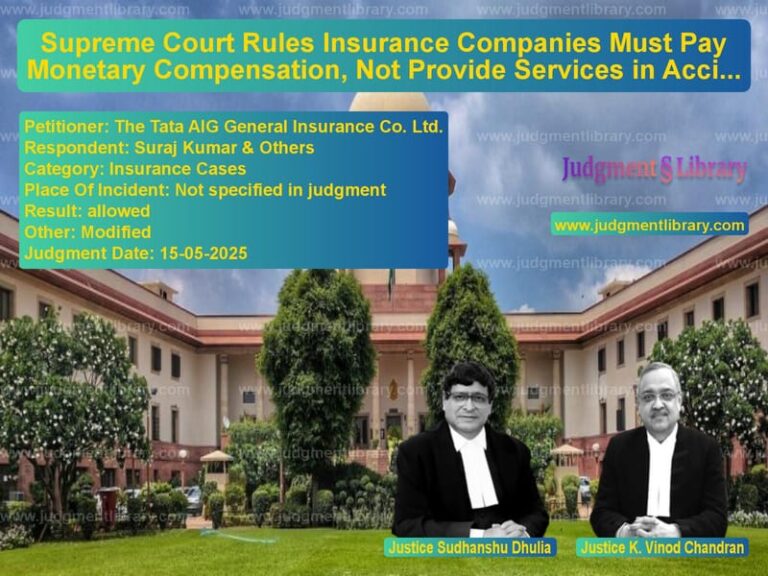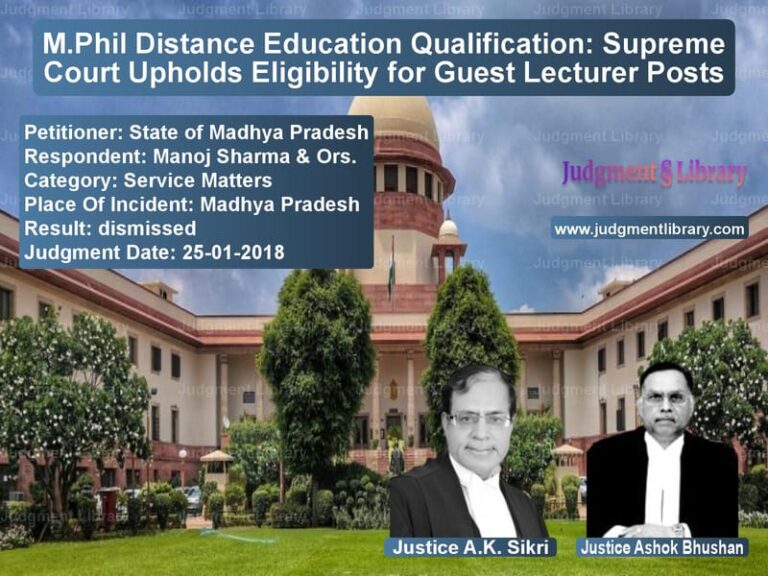Supreme Court Grants Interest on Solatium in Land Acquisition Case
The Supreme Court of India, in the case of Tamil Nadu Housing Board vs. Abdul Salam Sarkar (Dead) and Others, addressed a crucial issue regarding the entitlement of interest on solatium in land acquisition cases. The case revolved around the interpretation of the Constitution Bench ruling in Gurpreet Singh vs. Union of India (2006) regarding the retrospective applicability of interest on solatium.
Background of the Case
The dispute arose from the acquisition of land under the Land Acquisition Act, 1894. The reference court had awarded solatium along with interest at the rate of 12% per annum. However, the Madras High Court had later ruled that claimants were not entitled to interest on solatium, citing the pending issue before the Supreme Court in the case of Gurpreet Singh. The claimants were permitted to file a fresh petition based on the outcome of the Supreme Court ruling.
After the Supreme Court ruled in favor of awarding interest on solatium in Gurpreet Singh, the claimants moved an application to claim the interest. The Tamil Nadu Housing Board contested this, arguing that the issue had been settled earlier and that the execution petition had already been closed.
Legal Issues Raised
- Whether the claimants were entitled to interest on solatium under the Land Acquisition Act, 1894.
- Whether the execution court could grant interest on solatium even if it was not explicitly awarded by the reference court.
- Whether the claim for interest was barred due to the closure of earlier execution proceedings.
Petitioner’s (Tamil Nadu Housing Board) Arguments
- The claim for interest on solatium was barred since the execution petition had already been closed.
- The claimants had already received their compensation, and no further amount could be awarded.
- The reference court did not specifically grant interest on solatium, and the execution court could not go beyond the decree.
Respondent’s (Claimants) Arguments
- The Supreme Court in Gurpreet Singh had ruled that claimants were entitled to interest on solatium.
- The High Court had expressly permitted them to file a fresh petition after the Supreme Court’s ruling.
- The interest on solatium had not been rejected by the reference court, so it could be claimed later.
Supreme Court’s Observations
The Supreme Court analyzed the ruling in Gurpreet Singh and observed:
“The awardee/decree-holder would be entitled to claim interest on solatium in execution proceedings if it was not specifically negatived by the reference court.”
The Court noted that the High Court, in its earlier ruling, had kept the issue open, allowing claimants to seek interest based on the Supreme Court’s ruling. The Court also clarified that claims for interest could only be raised in pending execution proceedings and not in closed ones.
The Supreme Court ruled:
“The claim for interest on solatium was not rejected by the reference court. The liberty granted by the High Court to file a petition after Gurpreet Singh entitles the claimants to the benefit of interest.”
Final Judgment
- The Supreme Court upheld the Madras High Court’s ruling, allowing the claimants to receive interest on solatium.
- The execution court was directed to compute the exact amount due.
- The interest on solatium was made payable from the date of the judgment in Sunder vs. Union of India (2001).
Implications of the Judgment
- Retrospective Application of Interest: The judgment reaffirms that interest on solatium applies retrospectively where execution proceedings are pending.
- Clarity on Execution Court Powers: The ruling clarifies that execution courts can award interest on solatium if it was not explicitly rejected.
- Relief for Landowners: The decision ensures that landowners are fully compensated for land acquired under the Land Acquisition Act.
Conclusion
The Supreme Court’s ruling in Tamil Nadu Housing Board vs. Abdul Salam Sarkar provides crucial clarity on the entitlement of interest on solatium in land acquisition cases. The judgment ensures that rightful claimants receive full compensation, aligning with the principles laid down in Gurpreet Singh. The ruling serves as an important precedent for future land acquisition disputes.
Petitioner Name: Tamil Nadu Housing Board.Respondent Name: Abdul Salam Sarkar (Dead) and Others.Judgment By: Justice Dhananjaya Y Chandrachud, Justice Sanjiv Khanna.Place Of Incident: Tamil Nadu, India.Judgment Date: 13-01-2021.
Don’t miss out on the full details! Download the complete judgment in PDF format below and gain valuable insights instantly!
Download Judgment: tamil-nadu-housing-b-vs-abdul-salam-sarkar-(-supreme-court-of-india-judgment-dated-13-01-2021.pdf
Directly Download Judgment: Directly download this Judgment
See all petitions in Damages and Compensation
See all petitions in Property Disputes
See all petitions in Specific Performance
See all petitions in Judgment by Dhananjaya Y Chandrachud
See all petitions in Judgment by Sanjiv Khanna
See all petitions in dismissed
See all petitions in supreme court of India judgments January 2021
See all petitions in 2021 judgments
See all posts in Civil Cases Category
See all allowed petitions in Civil Cases Category
See all Dismissed petitions in Civil Cases Category
See all partially allowed petitions in Civil Cases Category

